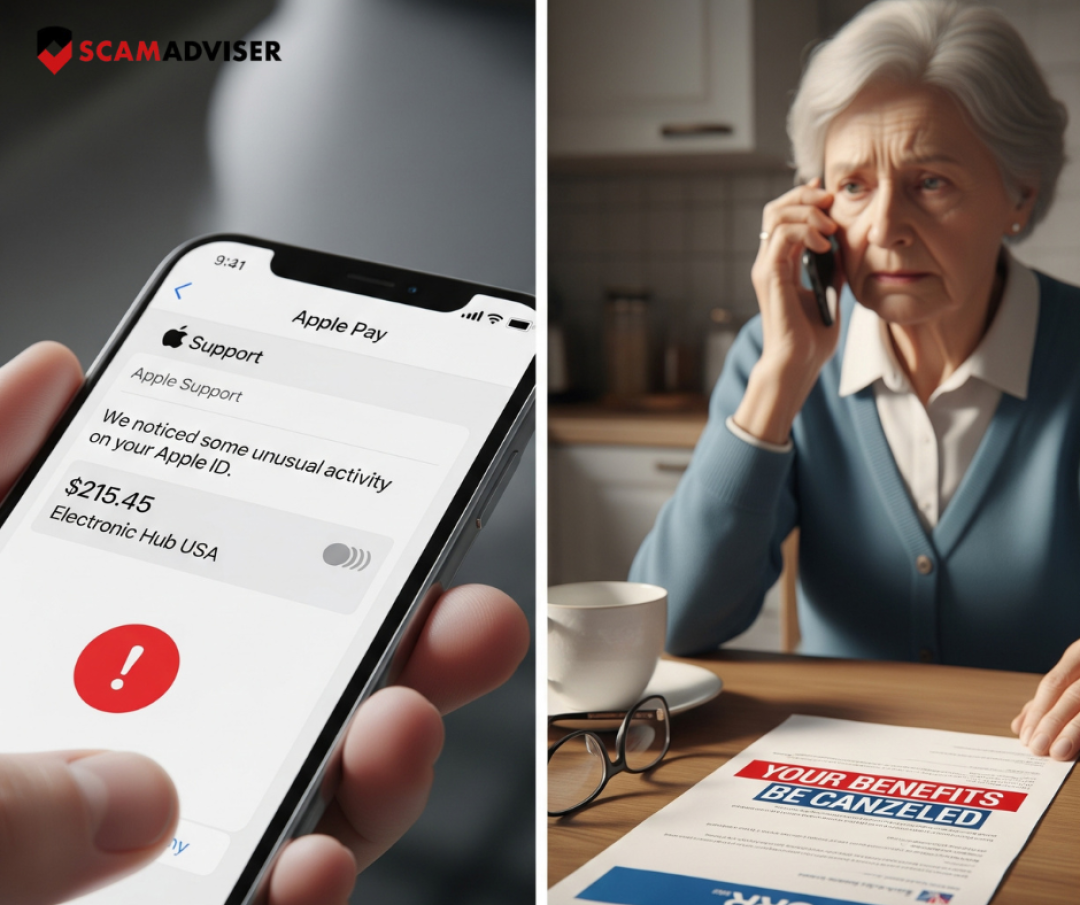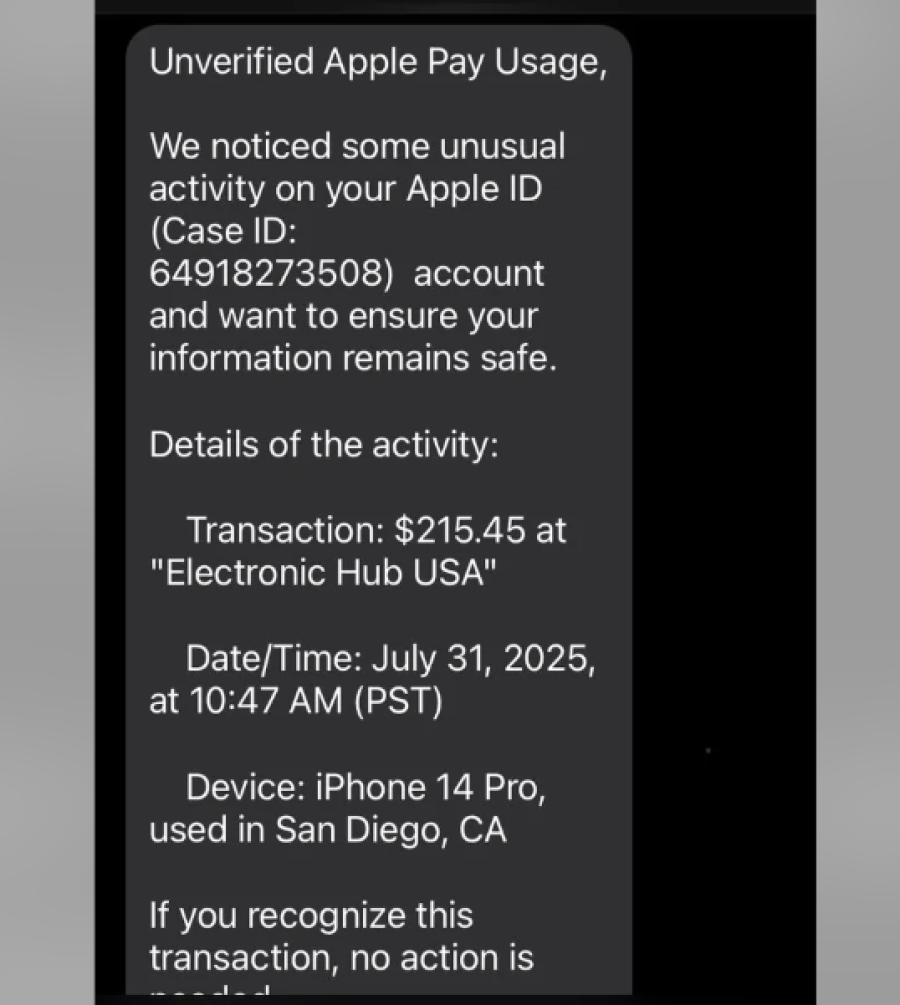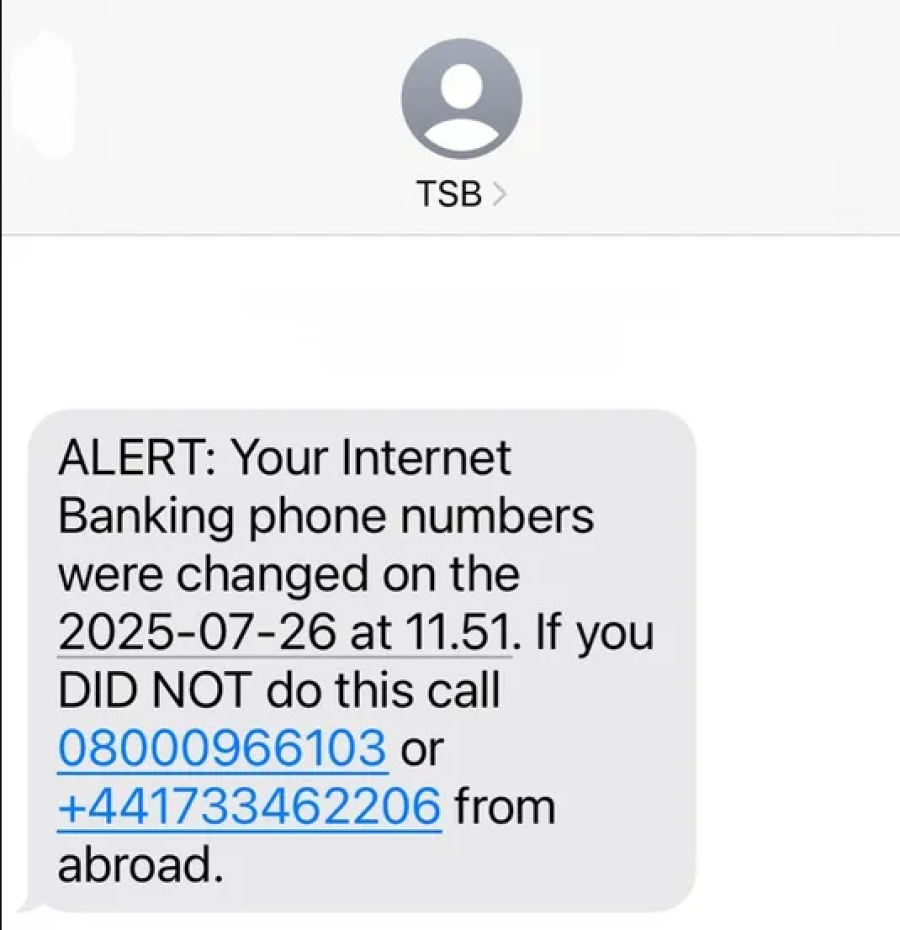Apple and Medicare Scams Top This Week’s Online Threats

Author: Adam Collins
Scams are like weeds—they keep popping up, no matter how many times we pull them out. And this week? They’ve gone full-blown invasive. Whether it’s a suspicious $215 Apple Pay charge you never made or a phone call claiming your Medicare benefits are about to vanish, fraudsters are banking on fear, urgency, and confusion to trip you up.
But don’t worry. We’ve rounded up the top scam tactics doing the rounds right now so you know exactly what to look out for—and what not to fall for.
1. Fake Apple Pay Email: “Unusual Activity Detected”
This scam is dressed up to look like an official email from Apple, complete with a fake case ID and details that are just convincing enough to scare you into action.

The message reads something like:
We noticed some unusual activity on your Apple ID (Case ID: 64918273508)... Transaction: $215.45 at "Electronic Hub USA"... If this wasn’t you, contact Apple Support immediately.
It even mentions a specific iPhone model, location (San Diego), and a made-up support link to make it feel legitimate. But it’s a trap.
What’s really going on?
This phishing email is designed to get you to click the fake link or call the fake number—handing over your Apple ID login, payment details, or worse.
What to do:
- Don’t click on anything.
- Don’t call the number.
- If you’re unsure, log in to your Apple account directly by typing the official URL into your browser—not by clicking a link.
- Report phishing emails to: reportphishing@apple.com
2. Medicare Scam Calls: New Tricks, Same Old Target
Scammers are still dialing in on seniors, pretending to be from Medicare with alarming claims or tempting offers. Their goal? Your Medicare number, Social Security details, or banking info.
Common Medicare Scam Variants in 2025:
- "Free Genetic Testing” – Just give us your Medicare number. (Spoiler: It’s not free.)
- “Send Back Your Card” – They claim your card is expired or damaged and ask you to mail it in.
- “Refund or Rebate” – Sounds great—until they ask for your private info to ‘process’ it.
- “Coverage Cancellation” – A scare tactic to get you to act fast and share details.
- “Mystery Charges” – You’re told you’ve been billed for services or supplies you never used.
How to stay safe:
- Medicare will never call, email, or text you to ask for your number or banking info.
- Hang up on unexpected calls—especially if they use pressure tactics.
- If in doubt, call Medicare directly at 1-800-MEDICARE.
3. TSB Impersonation Text: “Your Number Has Been Changed”
This one’s alarming and clever. A text shows up claiming to be from TSB Bank, warning you that the numbers linked to your account have changed.
It urges you to call a number—where a friendly fraudster awaits.

The catch?
Even people who don’t bank with TSB are getting these messages. And those who do bank with TSB have logged into their accounts only to find that nothing has changed.
The danger lies in the call.
The number in the message connects you to scammers who’ll ask for your banking info under the guise of “fixing the issue.”
What you should do:
- Don’t call the number.
- Don’t click on any links.
- Log into your online banking through your app or by typing the URL directly.
- Forward the message to 7726 (UK spam text reporting) or your local scam reporting number.
Bottom Line: Scammers Are Getting Bolder
From spoofed emails and fake bank alerts to phone calls disguised as healthcare help—scammers are upping their game. But you can outsmart them by staying alert, thinking twice before clicking or calling, and always verifying through official channels.
Before You Go:
Scammers are getting slicker by the day—but you don’t have to make it easy for them. Want a quick way to spot dodgy websites, shady links, or offers that sound too good to be true? Download the ScamAdviser App and check before you click. It's like having a scam-spotting sidekick in your pocket.
Spotted a scam we haven’t covered?
Share it with us through this form. The more we know, the better we all stay protected.
Report a Scam!

Have you fallen for a hoax, bought a fake product? Report the site and warn others!
Scam Categories
Help & Info
Popular Stories
As the influence of the internet rises, so does the prevalence of online scams. There are fraudsters making all kinds of claims to trap victims online - from fake investment opportunities to online stores - and the internet allows them to operate from any part of the world with anonymity. The ability to spot online scams is an important skill to have as the virtual world is increasingly becoming a part of every facet of our lives. The below tips will help you identify the signs which can indicate that a website could be a scam. Common Sense: Too Good To Be True When looking for goods online, a great deal can be very enticing. A Gucci bag or a new iPhone for half the price? Who wouldn’t want to grab such a deal? Scammers know this too and try to take advantage of the fact. If an online deal looks too good to be true, think twice and double-check things. The easiest way to do this is to simply check out the same product at competing websites (that you trust). If the difference in prices is huge, it might be better to double-check the rest of the website. Check Out the Social Media Links Social media is a core part of ecommerce businesses these days and consumers often expect online shops to have a social media presence. Scammers know this and often insert logos of social media sites on their websites. Scratching beneath the surface often reveals this fu
So the worst has come to pass - you realise you parted with your money too fast, and the site you used was a scam - what now? Well first of all, don’t despair!! If you think you have been scammed, the first port of call when having an issue is to simply ask for a refund. This is the first and easiest step to determine whether you are dealing with a genuine company or scammers. Sadly, getting your money back from a scammer is not as simple as just asking. If you are indeed dealing with scammers, the procedure (and chance) of getting your money back varies depending on the payment method you used. PayPal Debit card/Credit card Bank transfer Wire transfer Google Pay Bitcoin PayPal If you used PayPal, you have a strong chance of getting your money back if you were scammed. On their website, you can file a dispute within 180 calendar days of your purchase. Conditions to file a dispute: The simplest situation is that you ordered from an online store and it has not arrived. In this case this is what PayPal states: "If your order never shows up and the seller can't provide proof of shipment or delivery, you'll get a full refund. It's that simple." The scammer has sent you a completely different item. For example, you ordered a PlayStation 4, but instead received only a Playstation controller. The condition of the item was misrepresented on the product page. This could be the